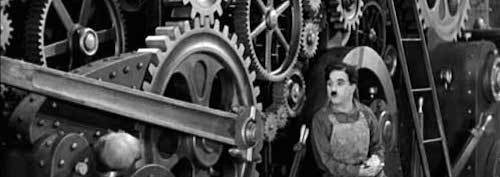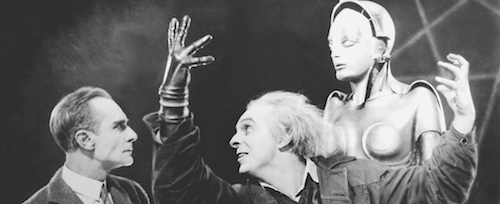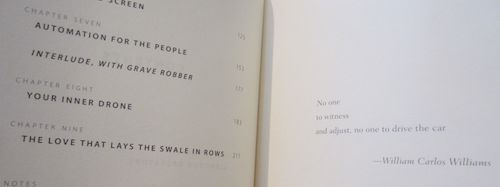Nicholas Carr's Blog, page 27
October 6, 2014
Uncaged, in Seattle and San Francisco
Fulfilling its Manifest Destiny, the Uncaged Tour has arrived at the western edge of the continent. I will be speaking about The Glass Cage at Town Hall Seattle tonight at 7:30 (details). And then, on Wednesday at 6:30 pm, I’ll be at the Commonwealth Club in San Francisco for a conversation with Salon’s Andrew Leonard (details). If you’re around, please swing by.
And here are a few choice quotes from recentGlass Cage reviews:
Hiawatha Bray, Boston Globe:
[Carr]suggests that automated systems sho...
September 30, 2014
Siri, how should I live?
Longreads is today featuring an excerpt from The Glass Cage. It’s a piece taken from the second to last chapter, “Your Inner Drone,” which examines the ethical and political implications of the spread of automation from factory production toeverydaylife.
It begins:
Back in the 1990s, just as the dot-com bubble was beginning to inflate, there was much excited talk about “ubiquitous computing.” Soon, pundits assured us, microchips would be everywhere — embedded in factory machinery and warehouse...
September 29, 2014
Tainted love: humans and machines
The Atlantic is featuring an excerpt from The Glass Cage. Taken from the second chapter, “The Robot at the Gate,” the piece looks at how our fraught relationship to labor-saving technology — a mix of utopian hope and existential fear — hasremained consistent since the beginning of the industrial revolution.
Here’s how the excerpt begins:
“We are brothers and sisters of our machines,” the technology historian George Dyson once remarked. Sibling relations are notoriously fraught, and so it is w...
September 28, 2014
The message a nudge sends
In “It’s All for Your Own Good,” an article in the new issue of the New York Review of Books, law professor Jeremy Waldron offers a particularly thoughtful examination of nudge-ism, via a review of two recent books by chief nudgenik Cass Sunstein. Here’s a brief bit from a sectionin whichWaldron explores the tension between nudging and dignity:
Nudging doesn’t teach me not to use inappropriate heuristics or to abandon irrational intuitions or outdated rules of thumb. It does not try to educate...
September 27, 2014
Alightings
Jamie Davies, “A Closed Loop“:
The concept of ‘the gene for feature x’ is giving way to a much more complicated story. Think something like: ‘the gene for protein a, that interacts with proteins b, c and d to allow a cell to undertake process p, that allows that cell to co‑ordinate with other cells to make body feature x’. The very length of the above phrase, and the weakness of the blueprint metaphor, emphasises a conceptual distance that is opening up between the molecular-scale, mechanical...
The Glass Cage: table of contents
My new book, The Glass Cage: Automation and Us, comes out on Monday (as I may have mentioned before). Here’s what the table of contents looks like:
Introduction: Alert for Operators
One:Passengers
Two:The Robot at the Gate
Three:On Autopilot
Four:The Degeneration Effect
Interlude, with Dancing Mice
Five: White-Collar Computer
Six: World and Screen
Seven: Automation for the People
Interlude, with Grave Robber
Eight: Your Inner Drone
Nine: The Love That Lays the Swale in Rows
Your chance to preorder is rapi...
September 25, 2014
The juggler’s brain (continued)
A now famous Stanford study by Eyal Ophir and Cliff Nass (et al.) found that heavy media multitaskers — people whoconstantly shift their attention between differentof streams of information — have less control over their thoughts and less ability to distinguish important information from unimportant stuff. In a word, heavy multitaskers arescatterbrained. A new study, “Higher Media Multi-Tasking Activity Is Associated with Smaller Gray-Matter Density in the Anterior Cingulate Cortex,”by two ne...
September 22, 2014
Automation anxiety, 1950s-style
From Norbert Wiener’s The Human Use of Human Beings, published in 1950:
Let us remember that the automatic machine, whatever we think of any feelings it may have or may not have, is the precise economic equivalent of slave labor. Any labor which competes with slave labor must accept the economic conditions of slave labor. It is perfectly clear that this will produce an unemployment situation, in comparison with which the present recession and even the depression of the thirties will seem a...
September 21, 2014
Atrapados
The Spanish edition of The Glass Cage, titledAtrapados: Cómo las Máquinas se Apoderan de Nuestras Vidas,is being published by Taurus on Wednesday. Today’s issue ofEl Paísincludes a special feature on the book, with a reviewbyMercedes Cebrián, a profile, an excerpt, and arejoinder by business professor Enrique Dans. You can also read the opening pages of the Spanish translation here, courtesy of the publisher. The translation is by Pedro Cifuentes.
I’m keeping a list of all forthcoming editions...
September 18, 2014
What algorithms want
Here’s another brief excerptfrom my new essay, “The Manipulators: Facebook’s Social Engineering Project,” in the Los Angeles Review of Books:
We have had a hard time thinking clearly about companies like Google and Facebook because we have never before had to deal with companies like Google and Facebook. They are something new in the world, and they don’t fit neatly into our existing legal and cultural templates. Because they operate at such unimaginable magnitude, carrying out millions of inf...













